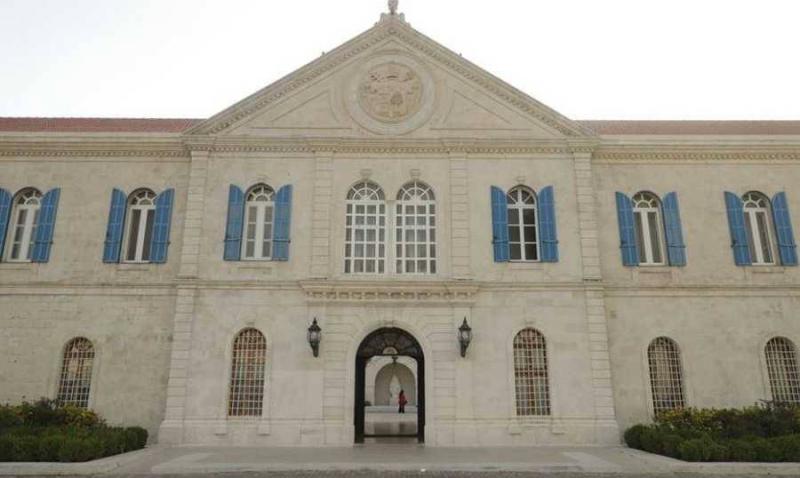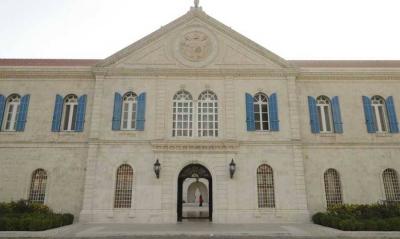Some have attempted to invest in the position of Maronite Patriarch Bechara Raï during his sermon last Sunday, regarding his "support" for the presidential dialogue called for by Speaker Nabih Berri, despite the fact that Raï did not declare a supportive or opposing position on this dialogue. Rather, he emphasized a stance on the nature of the dialogue "if it occurs." Concurrently, there is an attempt to "utilize" Saudi Ambassador to Lebanon Walid Bukhari's visit to Raï the day after his sermon, interpreting it as a supportive stance for the dialogue that Berri seeks.
From the perspective of Bkerke, Bishop Paul Sayah tells "Nidaa Al-Watan": "Read the text; the Patriarch did not say he is for or against the dialogue, and he does not take supportive or opposing positions on matters like this." He stresses that "the Patriarch's words are clear and should not be misinterpreted, he laid out these conditions for the dialogue, if it happens."
For their part, opposition sources clarify that there is a misunderstanding and exploitation of Raï's words and Bukhari's visit to him. This visit has a predetermined and scheduled date a few days before the sermon, and therefore, it is a classic protocol visit unrelated to Raï's recent position, even if it occurred immediately after. In addition, the positions of Bkerke and Saudi Arabia are well known; as much as Bkerke is keen on the "Taif Agreement," international resolutions, and the sovereignty and independence of Lebanon, Saudi Arabia is also careful about the "Taif Agreement" and previously called for a conference in this context to affirm its position. It has also stated its commitment to the constitution and its regulations, as confirmed in the statement by the five-member committee on Lebanon following its latest meeting in Doha.
The talk about a difference in the stance on the dialogue called by Berri between Bkerke and the "Lebanese Forces" party and the "Kataeb" party is based on a "tweet" from MP Ghayath Yozbik from the Forces, addressing the Patriarch, saying: "Sorry, Your Eminence, we did not understand your call for the MPs to attend the dialogue, as we strengthened our position with the content of your previous sermon." "Forces" sources clarify that there are no implications in Yozbik's tweet as portrayed; it is an ordinary position. Hence, "the Forces" made sure to announce yesterday the call that took place between party leader Samir Geagea and the Patriarch, noting that the communication between the Forces and Bkerke has been ongoing in an open manner on multiple levels.
This is in form; on the substance, any position from the Patriarch does not affect the opposition's stance. Moreover, "there is mutual trust and agreement in depth with the Maronite Patriarchate regarding Lebanon's identity and role, pluralism within it, and the state project," according to "Forces" sources. They indicate that "the agreement with Bkerke is deeper than the position of one team or another. What concerns us is Bkerke's national position, which is in favor of a unified weapon, implementing the constitution, enforcing international resolutions, and maintaining Lebanon's neutrality, along with regulation, institutions, and stability." They emphasize that "all these points unite us with Bkerke while contradicting the opposing project. Therefore, the problem is not between Bkerke and the 'Forces' and 'Kataeb,' but with those who do not want a state, do not implement the constitution, disrupt presidential elections, undermine institutional order, and prevent stability while linking Lebanon to external axes."
Additionally, "Forces" sources point out that the Patriarch speaks of dialogue as an absolute human value, and we too are not against dialogue as a general principle. However, the experience since 2006 until now has shown that there is a faction that does not adhere to what is agreed upon in dialogue, instead reverting to its previous stance the next day without executing or adhering to it.
The "Forces" focus on the essence of the Patriarch's sermon, which has been "ignored," namely his emphasis on adhering to what the constitution states, and "this is what we say." They clarify that "if we go to dialogue as Berri calls for, we will have instituted dialogue as a gateway to the presidential elections, and thus, in six years, we will face a similar dialogue, thereby hindering the role of the Parliament and the will of the people through elections, which the Patriarch certainly would not accept."




